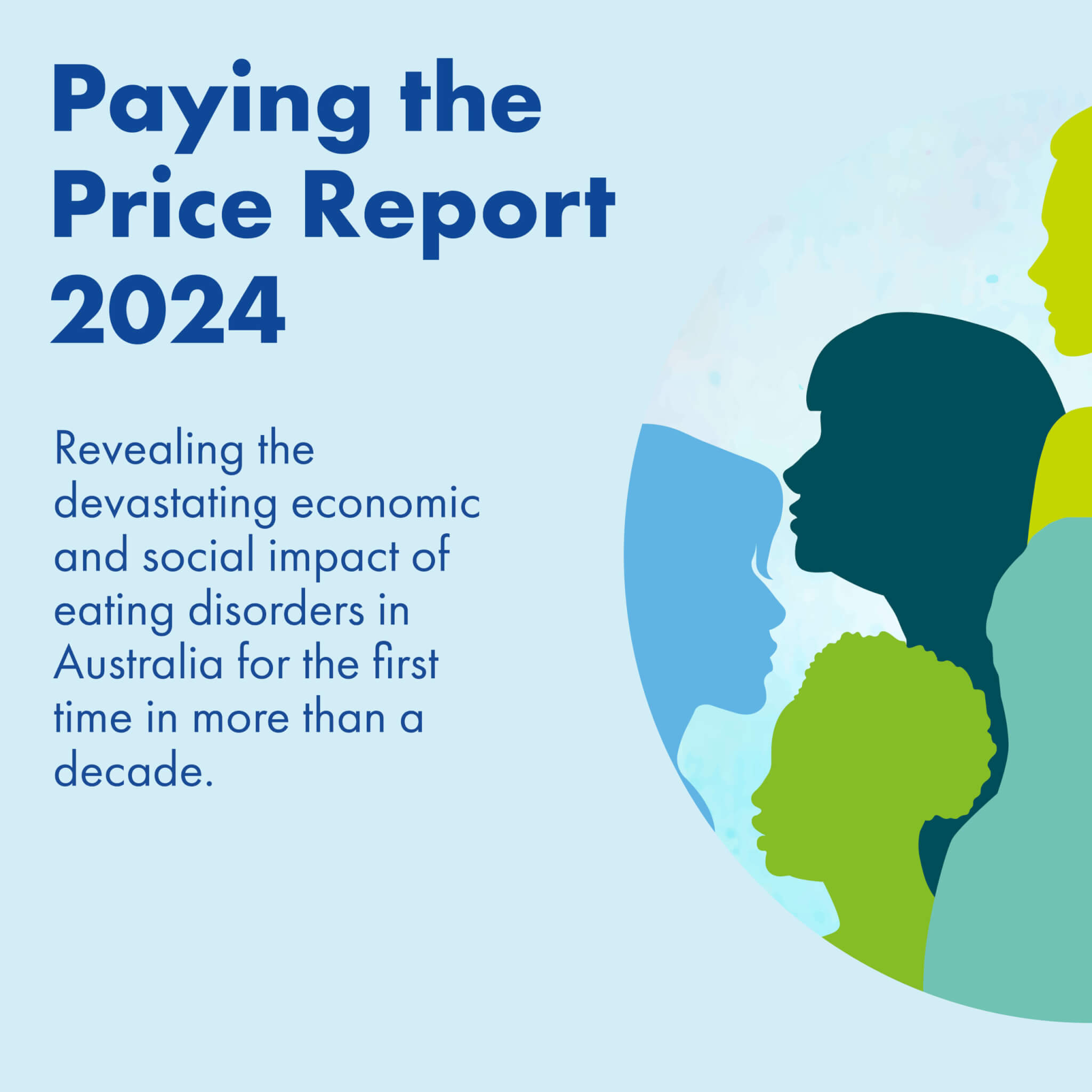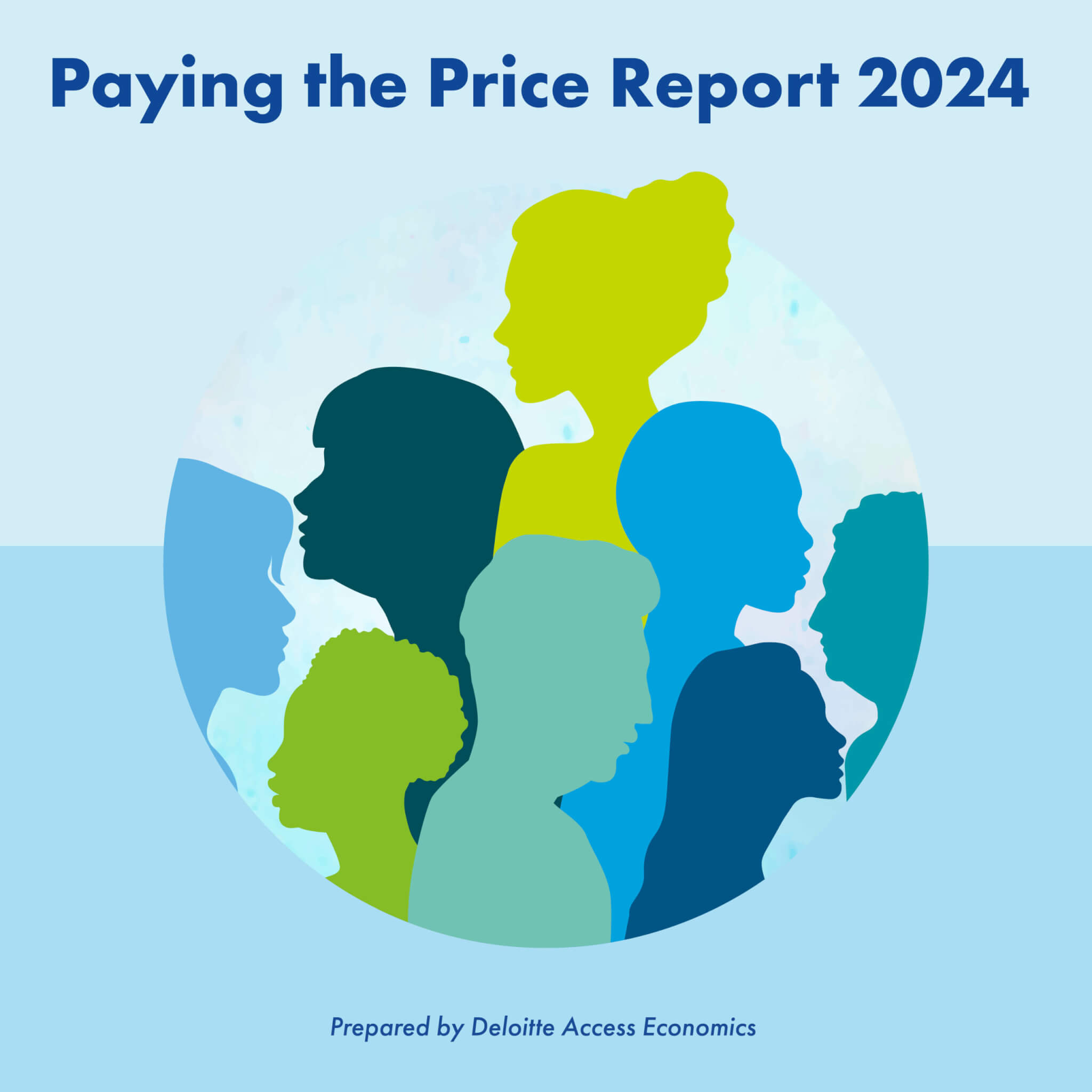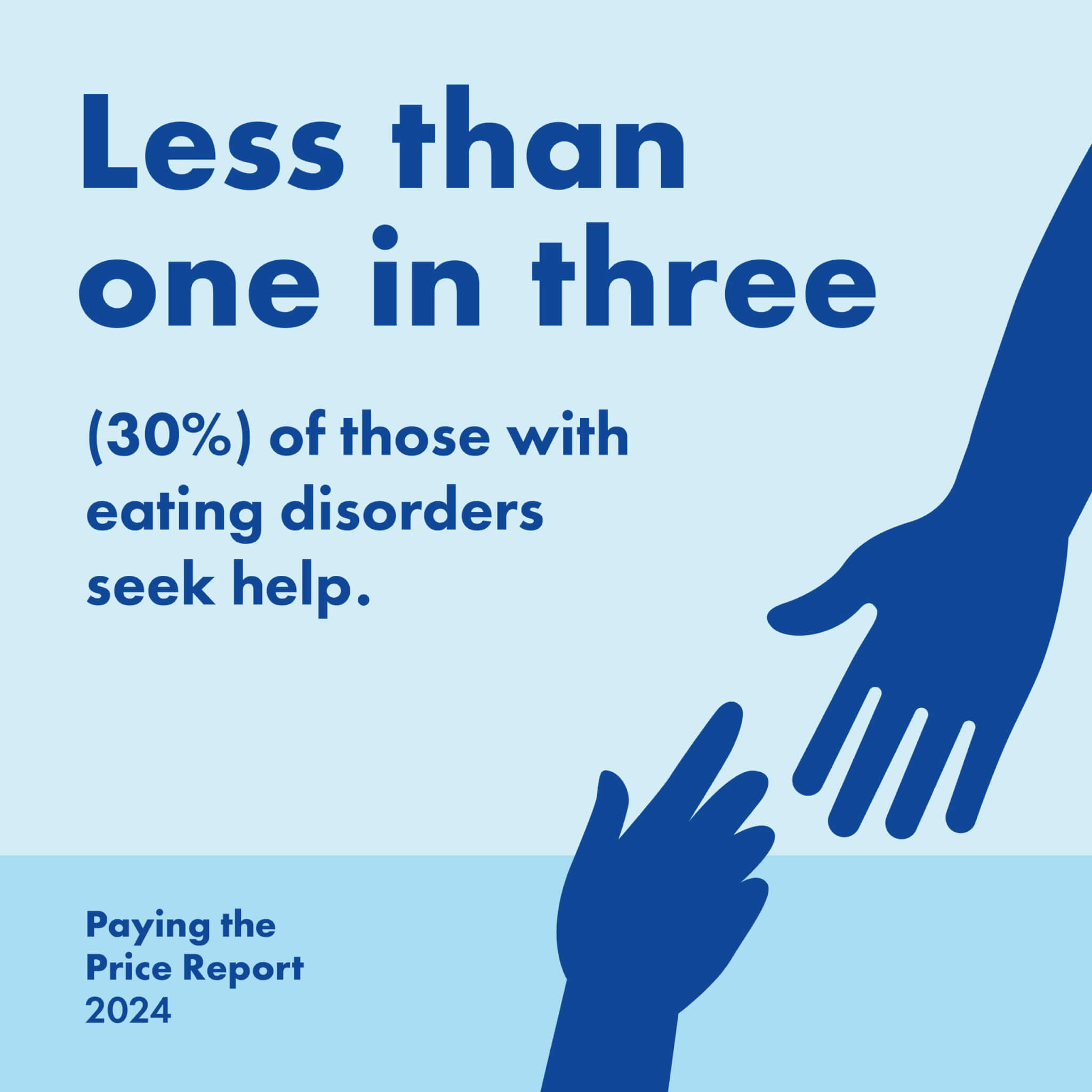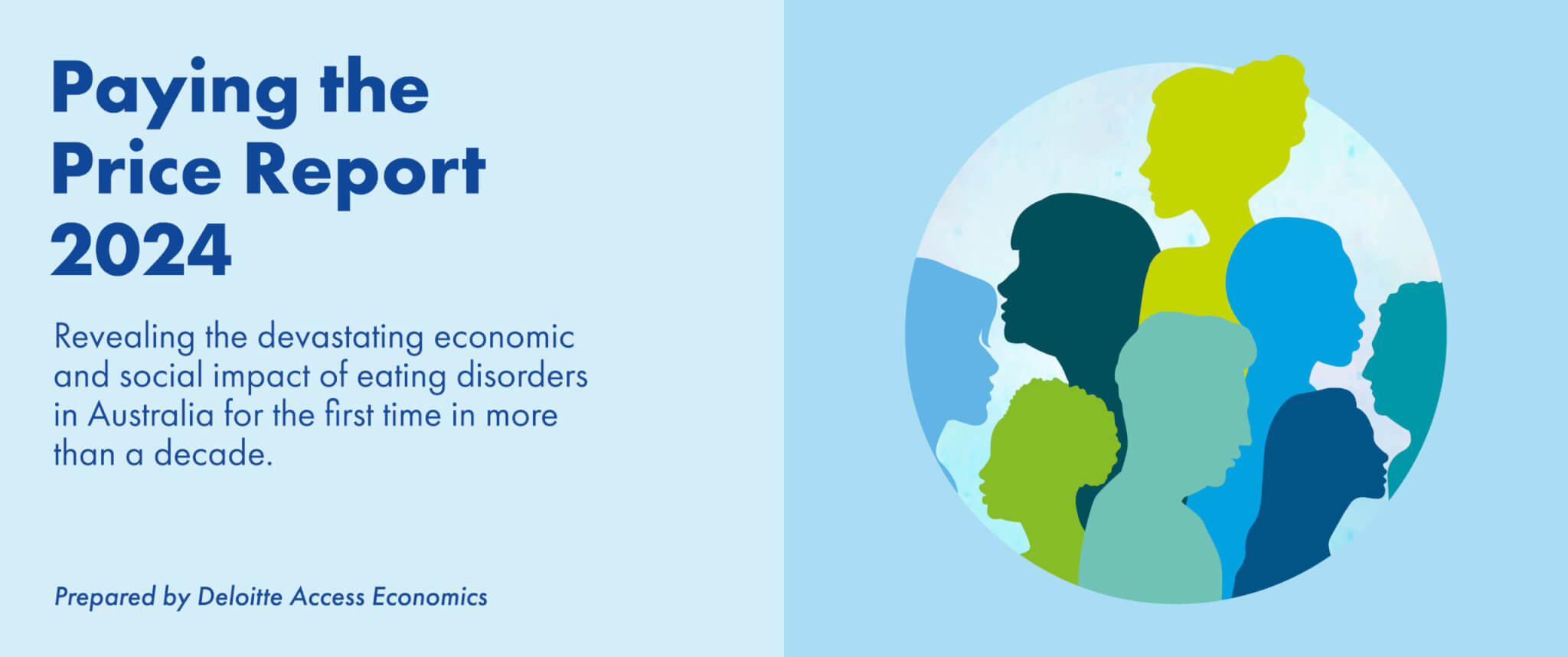
Paying the Price for Eating Disorders
Butterfly’s new report reveals the ongoing and devastating economic and social impacts of eating disorders in Australia and highlights the need for immediate action.
Produced more than a decade after the first edition in 2012, Paying the Price comes at a critical time. Both the number of people affected and cost have increased in the past 10 years – by 21% and 36%, respectively.
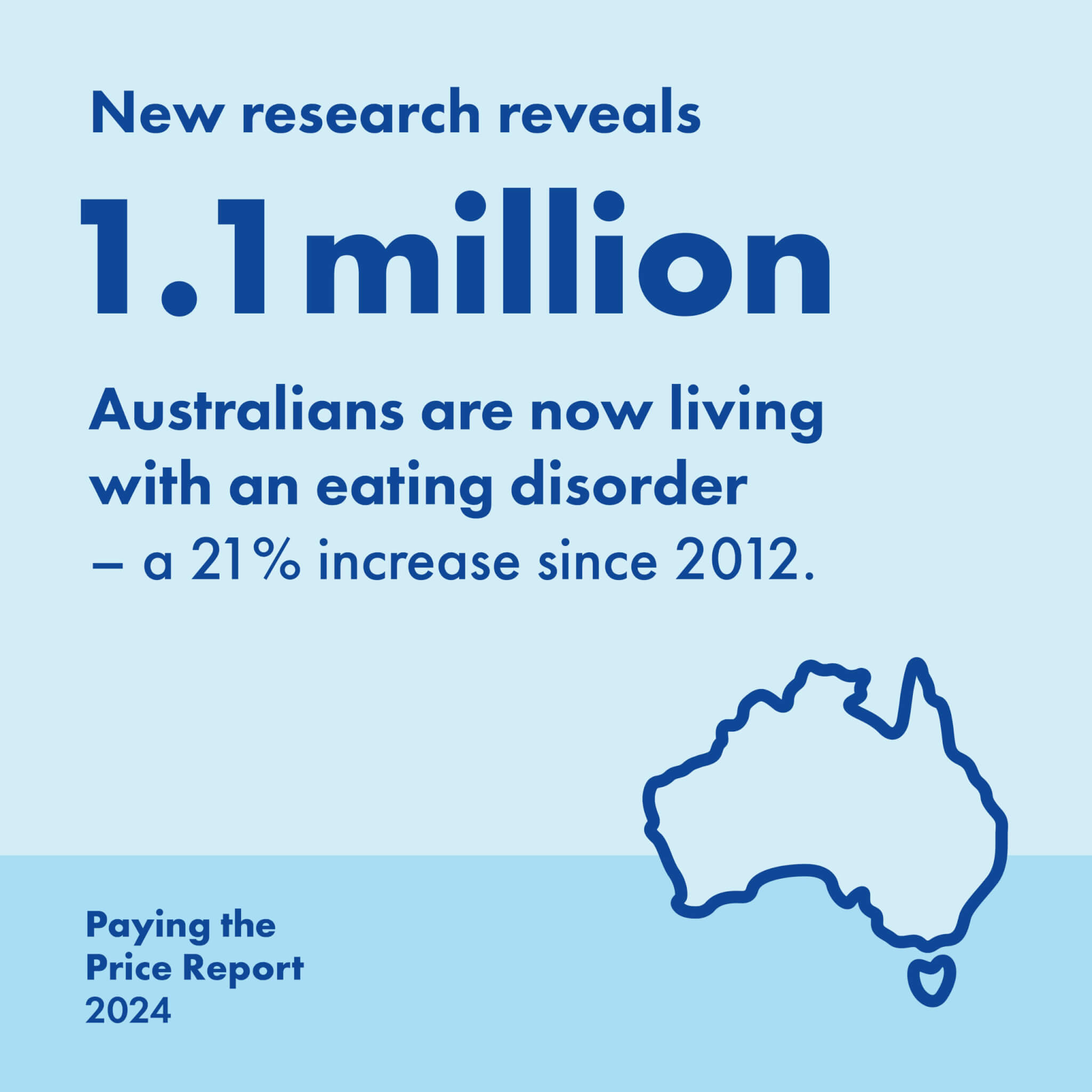
The 2024 Report reveals that:
- Women are twice as likely as men to experience an eating disorder
- 27% of individuals with an eating disorder are aged 19 year or younger (an increase of 13% since 2012)
- Less than one in three (30%) of people affected reach out for help
- There were 1,273 deaths due to an eating disorder in 2023
- Individuals with an eating disorder lose an average of 10 days of work per year
- The total productivity costs to Australia are $18.1 billion per year
- As a result of eating disorders, employers pay an average of $44,381 a year per 100 employees due to presenteeism, absenteeism, and search and hire costs
- The financial challenges don’t just impact individuals with eating disorders, they also affect carers, communities and workplace
Much more needs to be done to resolve this public health crisis.
“Often there were times I was not able to work, which meant either living off government payments, or living off limited funds. Overall, this meant that majority of my finances were being directed into appointments, which meant limited funds for other costs of living, further driving comorbid depression and anxiety.”
(Shannon, WA)

Chantel’s story
“The cost of my eating disorder makes up 20% of my annual income. Even with Medicare rebates and private health insurance, just accessing a therapist with fortnightly sessions, quarterly psychiatrist sessions to manage medication, and quarterly dietitian sessions runs up a cost of $11,738.90.
Across the year I lose over 80 hours of paid work which equates to $3,400 in lost wages. Once you include travel costs that adds another $1,200 onto the bill, bringing the total cost to $16,338.90. That’s $314.20 a week and I’m not even accessing all the treatment I need.
But the real cost of an eating disorder goes far beyond the cost of accessing mental health treatment. It’s the cost of travel to and from appointments, the dentist appointments because your stomach acid has eroded your enamel, the money spent on bingeing, or the new clothes you have to buy because your body keeps changing.
There is a huge cost to the economy with untreated eating disorders resulting in additional medical conditions developing or family needing to take time off work to support their loved one. Also, people’s career and income can stagnate or disappear due to the stigma associated with eating disorders, or their bodies become unable to maintain productivity in the workplace.
Perhaps the biggest cost to the individual is the real estate the eating disorder takes up in someone’s brain. This is often a lifelong condition that you have to consistently manage. The mental energy this requires means less time being present with your family, less capacity at work, less bandwidth for your friends and less time spent just existing.”
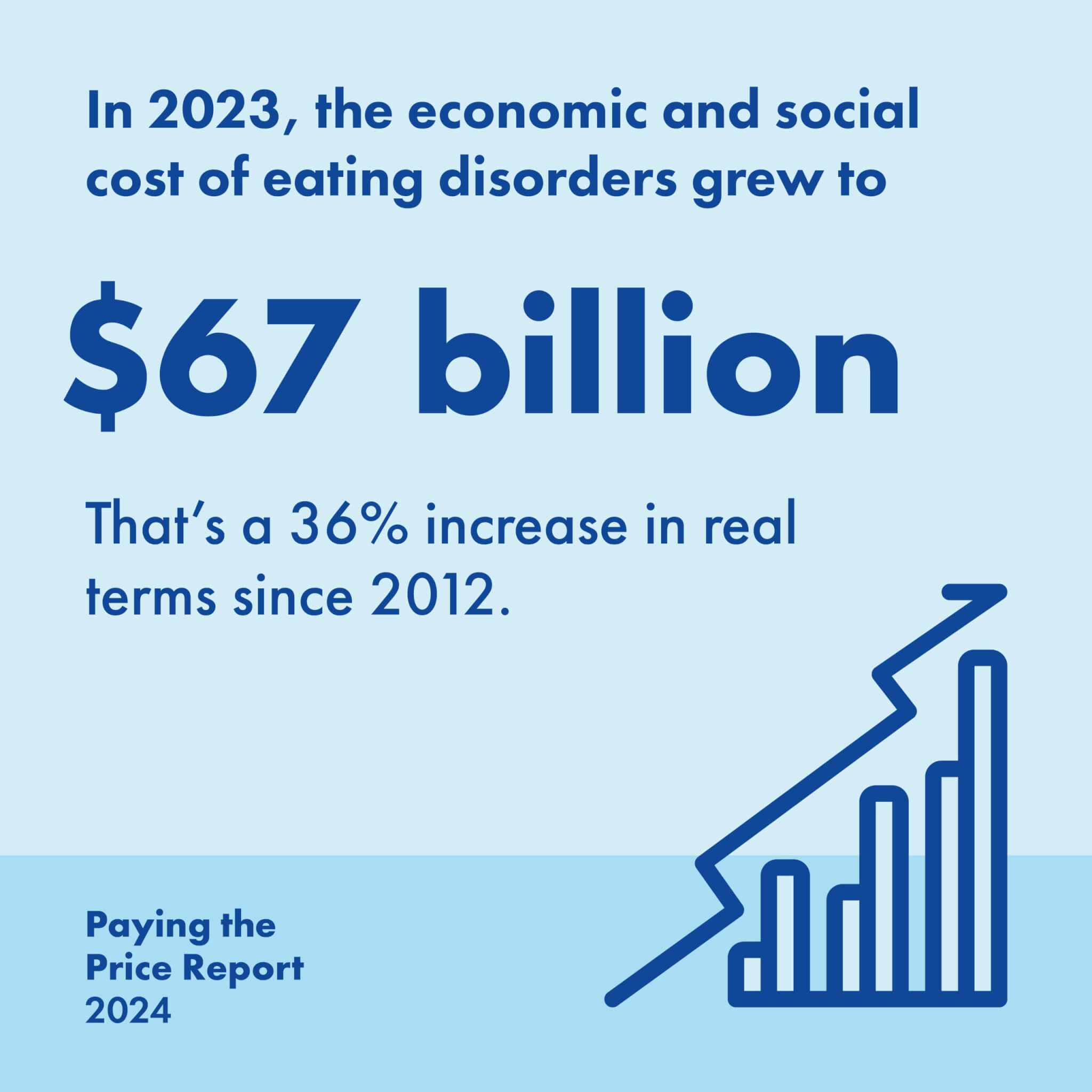
Comment by Dr. Jim Hungerford, CEO, Butterfly
“The substantial increase in the number of people with eating disorders and surge in economic costs since 2012 is deeply concerning.
We call on the government to recognise that eating disorders are a public health crisis that demand urgent investment.
Prevention is key – the earlier we can help someone before an eating disorder develops, the better the social and economic outcome.”
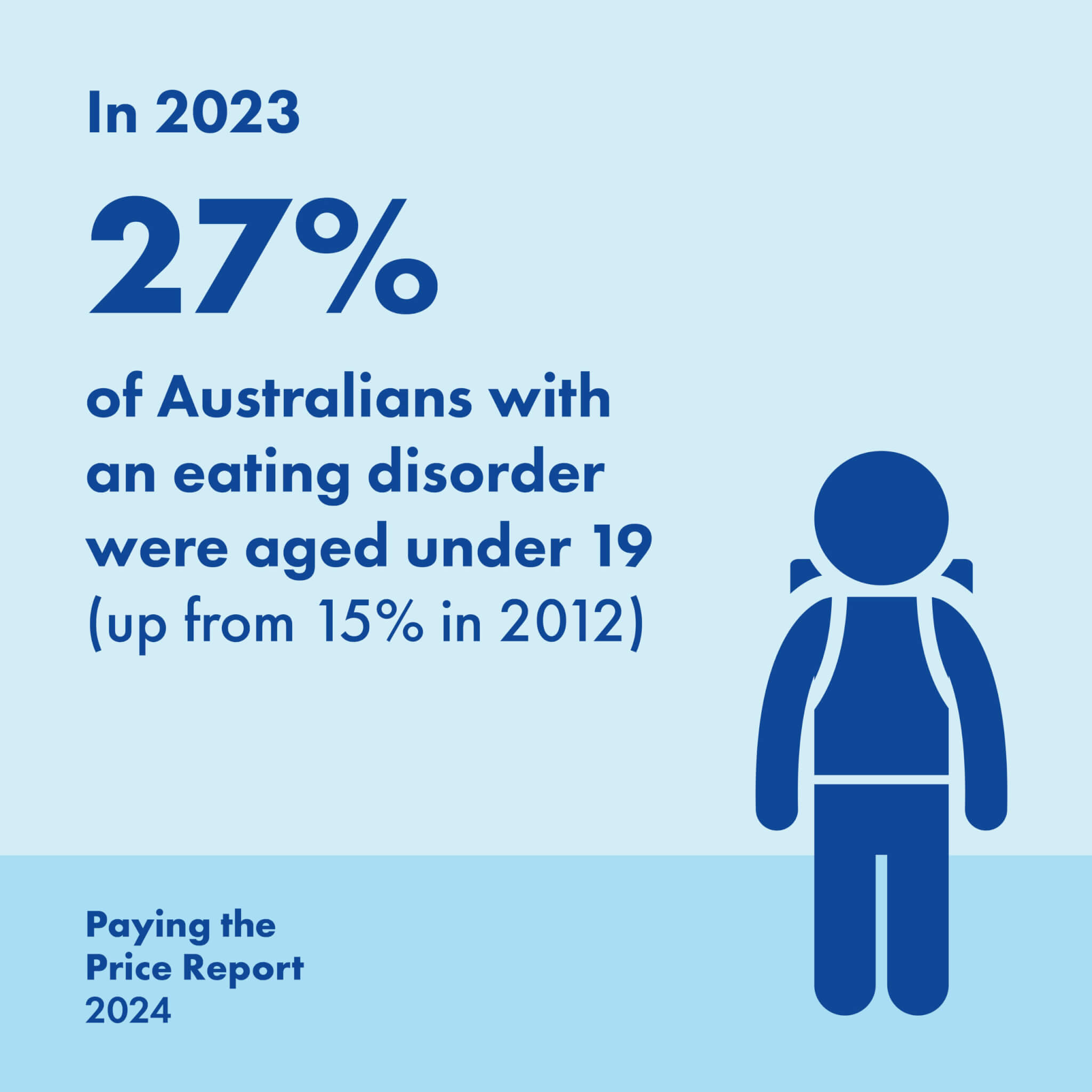
Comment by Co-Chairs of the Parliamentary Friends of Eating Disorders Awareness Group
“This powerful report from Butterfly reinforces how much more we still need to do to support the more than one million Australians currently living with an eating disorder. Thanks to this work, we now have up to date, significant evidence that sadly shows that what we are doing is not enough for every sufferer. While people currently living with an eating disorder, especially those in crisis, need continued and specialised support, it is clear that early intervention and prevention strategies are a powerful tool to stop the scourge of eating disorders. We will bring these findings to the Government and ask that they be considered to ensure continual improvements in the lifechanging prevention and early intervention efforts that deliver better outcomes for all Australians.”
Susan Templeman MP, Andrew Wallace MP and Zoe Daniel MP
“I have had to give up a full-time position because I couldn’t be on hand for my daughter or able to leave and go to all the appointments.” (Sally, NSW)
“The biggest cost of my eating disorder – bulimia – is the amount of money I have spent on binge food. I have been spending about 1/4 to 1/3 of my income on binge food since 2010. I’ve probably spent at least $150,000 dollars.” (Anonymous, NSW)
“We need safety nets – we need plans and services that understand that eating disorders can be chronic, long-term conditions, and are severely disabling. We need the funding to match the need if lives are going to be saved” (Rosiel, QLD).
Launch of Paying the Price 2024 at Parliament House
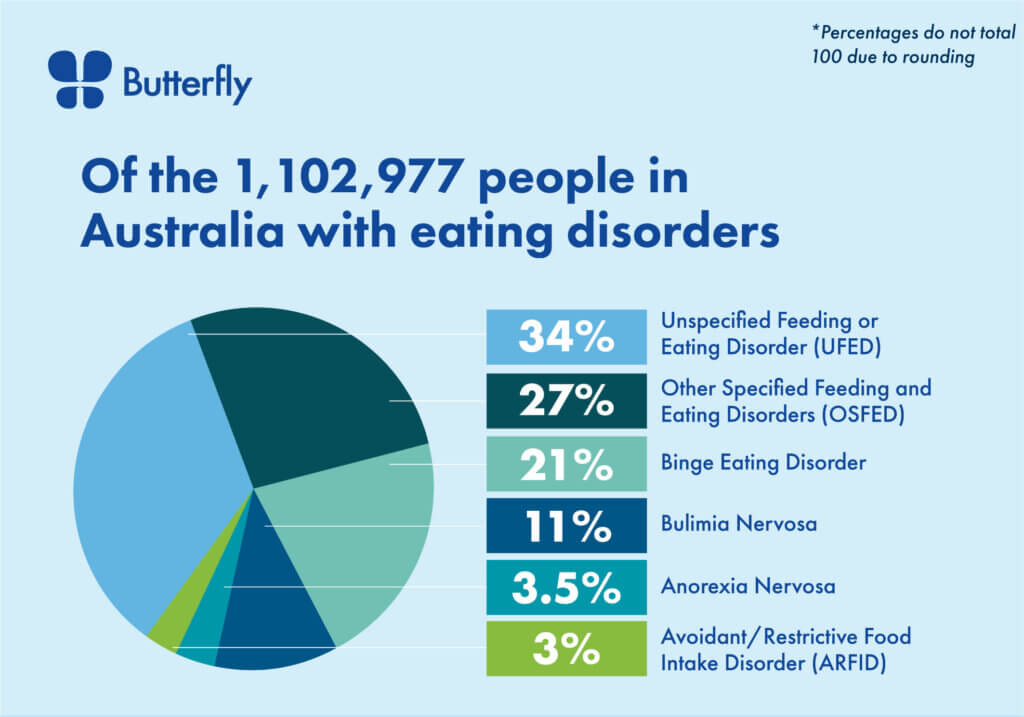
Thank you
Paying the Price 2024 was prepared by
Deloitte Access Economics and generously funded
by donors the Erdi Foundation,
Olivia Humphrey,
Cheryl and David Baer and family,
Commonwealth Bank of Australia and
David Murray AO.



















